Showing your ID to get online might become a reality – a closer look at the EU’s new age verification app
Coming to a website near you this summer: the European Commission is close to a ‘solution’ that could force people to use their government-issued ID to get online. EDRi and EFF’s concerns about threats to everyone’s privacy and data protection, a chilling effect on access to information, and digital exclusion – harming the already most marginalised in society - remain unsolved.
Filter resources
-

Showing your ID to get online might become a reality – a closer look at the EU’s new age verification app
Coming to a website near you this summer: the European Commission is close to a ‘solution’ that could force people to use their government-issued ID to get online. EDRi and EFF’s concerns about threats to everyone’s privacy and data protection, a chilling effect on access to information, and digital exclusion – harming the already most marginalised in society - remain unsolved.
Read more
-
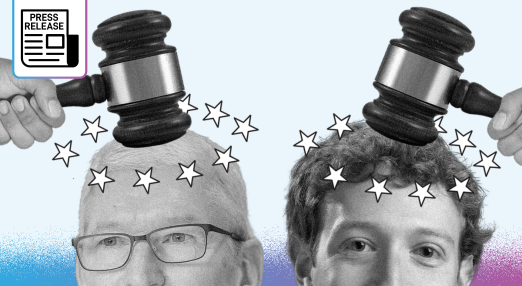
Commission slams Apple and Meta for breaching the Digital Markets Act, doesn’t stick the landing with fines
The European Commission has shown some teeth with the EU’s digital rulebook by slamming tech giants Apple and Meta with fines, and an order to stop the infringing behaviour. While we commend the strong stance, we're concerned about whether the low fines will actually lead to change of behaviour from the tech giants.
Read more
-

Civil society files DSA complaint against Meta for toxic, profiling-fueled feeds
Civil society organisations Bits of Freedom, Convocation Design + Research, European Digital Rights (EDRi), and Gesellschaft für Freiheitsrechte (GFF) are filing a complaint against Meta for violating the Digital Services Act (DSA).
Read more
-

EDRi files DSA legal complaint against X
EDRi and our member ApTI filed a DSA complaint against social media giant 'X' for breaching its obligations towards Trusted Flaggers.
Read more
-

12 civil society organisations tell delivery platforms it’s time to deliver answers on how they use algorithms to manage their workers
EDRi member Privacy International and more digital rights groups, together with trade unions, call out food delivery platforms for their algorithmic management of workers. In an open letter co-signed by 12 organisations, they make three clear recommendations for the platforms to improve.
Read more
-

The Digital Services Coordinator Database: Tracking DSA investigations into Big Tech
EDRi has launched its Digital Services Coordinator Database which provides a comprehensive overview of all enforcement authorities and the cases they have taken against online platforms under the EU’s Digital Services Act.
Read more
-

Why Ireland is the Achilles heel of the EU’s fightback against Big Tech
The recent controversies surrounding Big Tech moguls Elon Musk and Mark Zuckerberg — who are defying content moderation norms and accusing the EU of censorship — should come as no surprise to those following the tech industry closely. For over a decade, Big Tech has approached the EU's robust data protection framework as little more than a compliance checkbox, rather than a set of binding legal obligations.
Read more
-

Why EDRi is leaving X and where to find us
Since Musk’s acquisition of X in October 2022, we have been working towards an exit strategy. Recent developments and Musk becoming part of the second Trump administration have contributed to a unique and toxic platform power-grab, which has accelerated our X-it timeline. EDRi is joining many other organisations and people in leaving X by the end of January 2025. On 20 January, we will host an important X Spaces conversation to encourage our followers to join Mastodon.
Read more
-
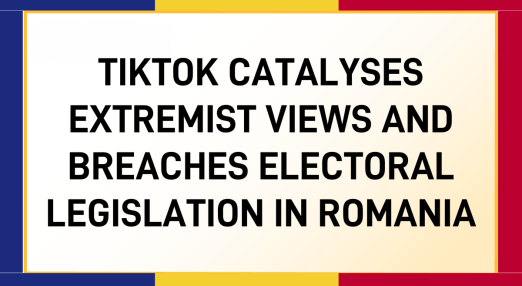
TikTok catalyses extremist views and breaches electoral legislation in Romania
Romanian civil society is alarmed about political advertisement on TikTok breaching European and national laws and how that benefited an extremist candidate in the elections. EDRi member ApTI with 20 other NGOs from Romania call upon the European Commission and the national authorities to take swift action and investigate, as elections are still ongoing.
Read more
-
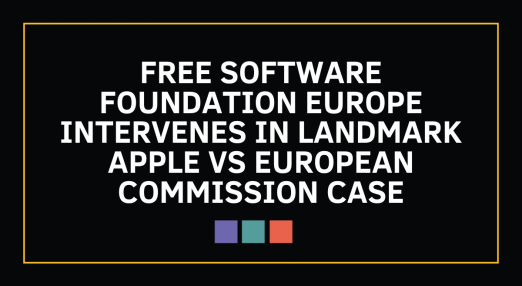
Free Software Foundation Europe intervenes in landmark Apple vs European Commission case
EDRi member Free Software Foundation Europe (FSFE) is taking a stand against Apple in a landmark case at the Court of Justice of the European Union, where the tech giant is challenging EU digital law. This intervention could help users and developers of Free Software.
Read more
-
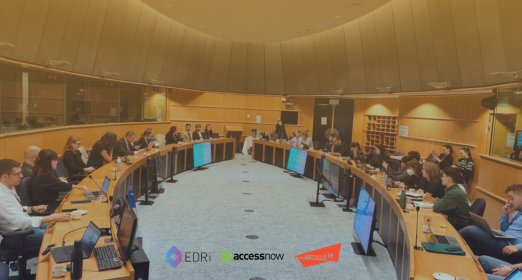
EDRi and members take EU decision-makers through 20 years of digital policy
This September, EDRi, Access Now and ARTICLE 19 took Parliamentarians through a rollercoaster ride of all things digital policy in the European Union. From the early internet and initial experiments in platform regulation, through more recent regulatory innovations, and finally to questions of security and surveillance, we shared a digital rights perspective of the good, the bad and the ugly of digital policy in the EU.
Read more
-
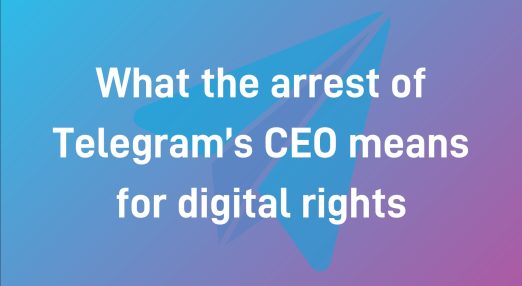
What the arrest of Telegram’s CEO means for digital rights
French prosecutors have charged Telegram CEO Pavel Durov for illegal content disseminated by users of his platform and the company’s failure to cooperate with law enforcement authorities. EDRi is following this case with great concern, here is why.
Read more
